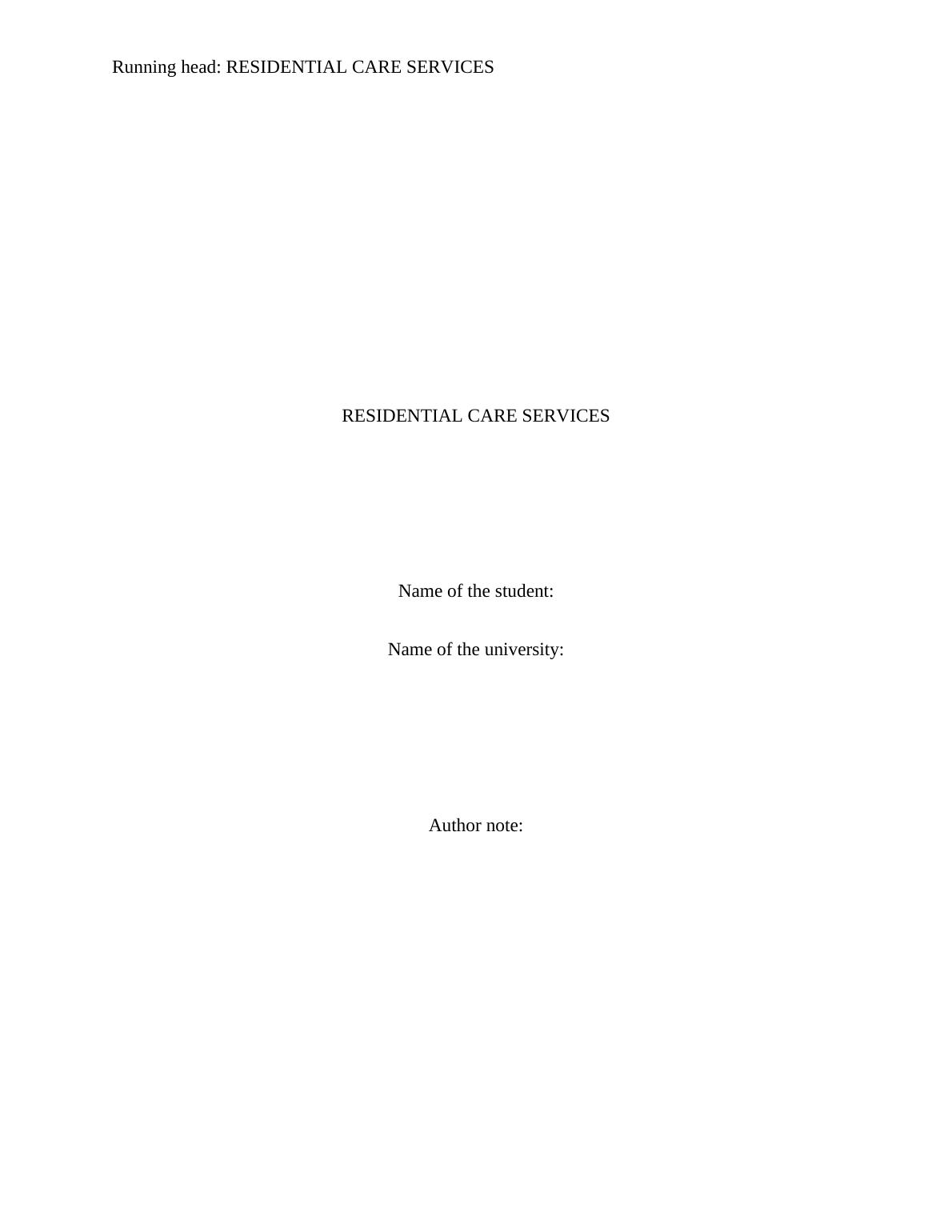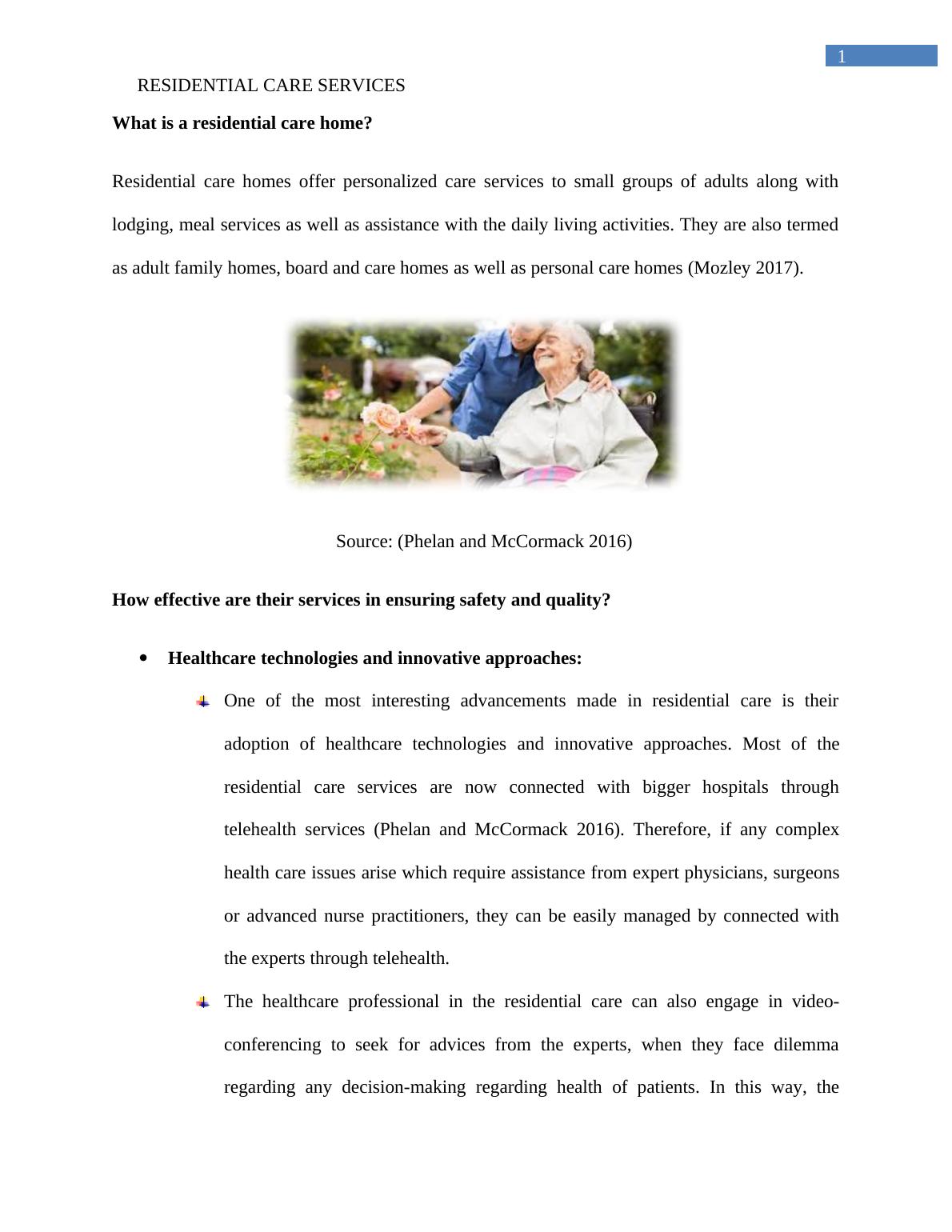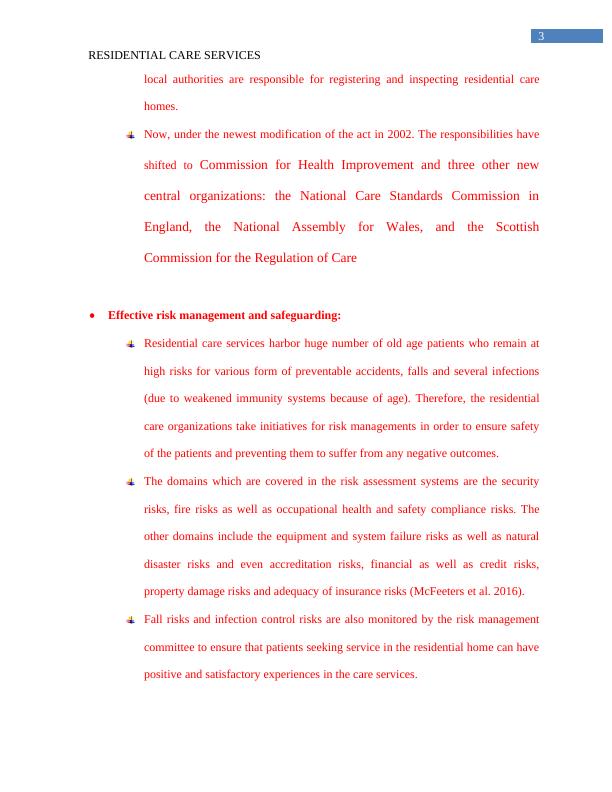Residential Care Services
11 Pages1567 Words71 Views
Added on 2023-04-07
About This Document
Residential care homes offer personalized care services to small groups of adults along with lodging, meal services as well as assistance with the daily living activities. They are also termed as adult family homes, board and care homes as well as personal care homes. The effectiveness of their services in ensuring safety and quality is achieved through healthcare technologies and innovative approaches, legislative framework, effective risk management and safeguarding, healthcare professionals well trained to manage hazards, nursing professionals putting importance on therapeutic relationship building, continuous professional development through effective training, and multi-disciplinary teamwork services.
Residential Care Services
Added on 2023-04-07
ShareRelated Documents
End of preview
Want to access all the pages? Upload your documents or become a member.
Gibb’s Reflective Cycle: Application of Policy and Intervention in Social Care Practice
|25
|7851
|245
Community Care: Care Practice in the Community
|10
|3263
|140
Governance and Regulatory Processes
|12
|1310
|33
Pervasive Systems in Healthcare: Education, Decision-making, Patient Engagement, and Security
|16
|3285
|398
Assignment on Nursing Specialty
|7
|1868
|63
Medicine Management and Administration: Review of Policies and Impact on Health and Safety
|11
|2437
|230




